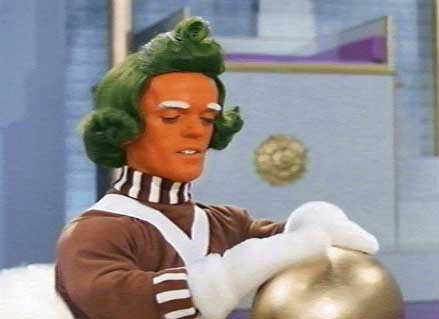Et Tu, Sunflower the Centaur?

The New York Times on the repackaging of (mostly) children’s literature from a (hopefully) awkwardly progressive parent’s viewpoint, with various caveats and hesitations:
The “Babar” series of books has long been the subject of ferocious debates about its status as a propagandistic celebration of colonialism. The argument makes complete sense to me — the elephants return to their native land bearing the gifts of civilization learned in the metropolis and make war on the rhinoceroses who don’t share the benefits of acculturation. But as a practical parenting matter, I don’t care. My son won’t be turned into a more effective colonist by stories of elephants riding elevators.
All the usual suspects are here, of course: Little Black Sambo, the golliwogs, Tintin in the Congo, Dumbo’s crows, etc., but also a handful of ones that may have passed under our cultural radar, like Pippi Longstocking’s Cannibal King, Dahl’s original Oompa-Loompas (spoiler alert! they ain’t orange), and the pre-1960’s centaur sequence in Fantasia). For further reading, the often unbearably-twee Adam Gopnik’s meditation on Babar is more than worth a look.
What’s the answer? As the writer points out, we want to save Pippi. Does Tintin in the Congo need to live? Do we edit, alter, or jettison? Or do we natter on over the text like we’re Wes Anderson doing a DVD commentary? Is it even ethical to revamp an author’s work after their death? Do we just throw up our hands, unlock the library, and hope that our kids will somehow intuit the wrongness of things?
Instead of all of these sad little questions, maybe the bigger problem is this: the world is a bad place for most people, always has been, and we do all we can to avoid thinking about it. Parenting reflects that back on us, whether we want to see it or not.